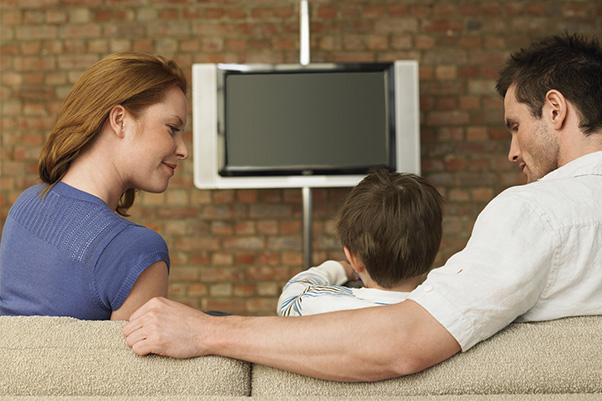
With constant breaking news streaming in through media outlets and social networks, kids and teens need to know how to digest and decipher news reports. Teach them the basics of how to filter out what is accurate and important in the news world. We found a fabulous article on the subject originally published on Common Sense Media and written by Sierra Filucci. Please check it out.
When big news breaks, it's easy to get caught up in following the news online. But while the Internet -- from major news sites to Twitter -- can be a valuable place to find useful information, it can also be the source of misinformation. Helping kids and teens understand the news and how to separate fact from fiction is an important job for parents and educators.
Here's some advice parents can offer kids and teens who consume the news:
Remember, breaking news is often wrong. In the rush to cover stories, reporters make mistakes, officials don't always have correct information, and tidbits that sound plausible often get passed around before anyone can check for accuracy. One Texas TV station reported through closed captioning that Zooey Deschanel was one of the accused Boston Marathon bombers!
Use social media wisely. Some say Twitter is a great source of news in the first few minutes of a tragedy, but after that it just gets messy and largely inaccurate. On the other hand, Facebook can be a great way to connect with friends affected by news and spread personal news within a more limited circle, for example: "I've heard from all my Boston-area family and everyone's OK." (Of course, news links posted by friends on Facebook might contain unverified information, so take them with a grain of salt.)
Be skeptical. If something sounds too good to be true, it probably is. After the Boston Marathon bombing, NBC Sports reported that some runners kept running all the way to the hospital to donate blood for the victims. Not true. There are plenty of websites devoted to debunking fake news stories, like Snopes, Urban Legends Online, Truth or Fiction, and Factcheck. Visit them to find out if a story is true or not.
Stand back, take a break. With social media at your fingertips, it's tempting to weigh in with your opinion or pass along every tidbit that comes along. But restraint is necessary to avoid adding to the noise and confusion. We like the reasonable approach taken by NPR reporter Steve Inskeep, who cautioned listeners during the Boston Marathon aftermath, "We are collecting dots. It's a day to be careful about connecting them."
Stick with credible news sources. News sources that claim to have all the answers or jump to conclusions about why something happened are just adding to the fray. And remember that cable news channels make money off the news -- the more titillating the story, the more eyeballs watch, the more money they make. This wikihow offers a primer on how to determine the credibility of a source.
Keep it age appropriate. Younger teens and kids aren't always ready to digest big tragic news -- especially if it seems to affect kids, like school shootings or abuse scandals. The constant repetition of information can be overwhelming and confusing for younger kids, and in the beginning of a news event, parents might not be able to offer any reassuring answers right away. Kids who are eager to learn more about certain events can check kid-oriented news sources.
With breaking news being shared through many social media networks in addition to multiple media outlets, kids and teens can become overwhelmed and turned off by the idea of following the news. By teaching your kids the basics of deciphering breaking news, you will enable them to become more informed and eager to learn. Use a digital parenting tool like uKnowKids to ensure that your kids are surrounded by mostly high-quality and accurate news sources.
Access the full Common Sense Media article here.



